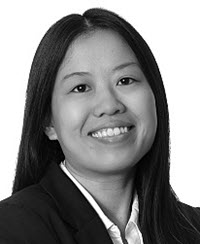Abstract
Excerpted From: Shui Sum Lau, Filial Piety and U.S. Family Law: How Cultural Values Influence Caregiving, End-of-life, and Estate Planning Decisions in Asian American Families, 26 Asian Pacific American Law Journal 123 (Spring, 2023) (158 Footnotes) (Full Document)
 For thousands of years, families of Chinese descent across Asia have observed Qingming Festival, also called Tomb Sweeping Day or Ancestors' Day. Qingming Festival occurs during the first weekend of April and marks the unofficial beginning of spring. On this day, families visit the resting places of ancestors, clean gravesites, make ritual offerings, and enjoy picnics with foods like crispy cakes and sweet rice balls. Sometimes conflated with ancestral worship, the rituals of Qingming Festival more accurately represent a Confucian form of posthumous remembrance. For example, observers sweep and tidy graves as a tangible way to pay respects to ancestors and retell their stories to the next generation. Burning thin joss paper is said to send “money” to deceased relatives that they can use to buy goods and even pay off afterlife debts. And baking green rice balls, sharing peach blossom porridge, and flying kites are all ways for observers to express their anticipation of new life in the spring season. traditions offer a glimpse into East Asian cultural values surrounding life, death, and aging. These values include revering elders, observing filial piety, and maintaining family harmony. As cultural bedrocks, these values are often instilled in those who have migrated from Asia to America. This Article seeks to explore how aspects of Asian American identity and history uniquely shape individual interactions with family and elder law, with a focus on the aspects of East and South Asian culture mentioned above. Specifically, this Article examines how values like filial piety manifest in the immigrant community's approaches to elder caregiving, end-of-life decisions, and estate planning.
For thousands of years, families of Chinese descent across Asia have observed Qingming Festival, also called Tomb Sweeping Day or Ancestors' Day. Qingming Festival occurs during the first weekend of April and marks the unofficial beginning of spring. On this day, families visit the resting places of ancestors, clean gravesites, make ritual offerings, and enjoy picnics with foods like crispy cakes and sweet rice balls. Sometimes conflated with ancestral worship, the rituals of Qingming Festival more accurately represent a Confucian form of posthumous remembrance. For example, observers sweep and tidy graves as a tangible way to pay respects to ancestors and retell their stories to the next generation. Burning thin joss paper is said to send “money” to deceased relatives that they can use to buy goods and even pay off afterlife debts. And baking green rice balls, sharing peach blossom porridge, and flying kites are all ways for observers to express their anticipation of new life in the spring season. traditions offer a glimpse into East Asian cultural values surrounding life, death, and aging. These values include revering elders, observing filial piety, and maintaining family harmony. As cultural bedrocks, these values are often instilled in those who have migrated from Asia to America. This Article seeks to explore how aspects of Asian American identity and history uniquely shape individual interactions with family and elder law, with a focus on the aspects of East and South Asian culture mentioned above. Specifically, this Article examines how values like filial piety manifest in the immigrant community's approaches to elder caregiving, end-of-life decisions, and estate planning.
Part I provides background regarding the United States' extensive history of anti-Asian immigration policies and legislation; these discriminatory policies help explain the continuing proliferation of Asian cultural values in Asian American immigrants. Part II describes cultural and historical considerations that shape how Asian American adult children provide caregiving to their parents, particularly in the face of a rapidly aging society. Part III examines the unique challenges Asian American families face in helping elders establish advanced directives and making end-of-life decisions on behalf of ill family members. Part IV considers similar challenges in estate planning and the handling of inheritance disputes. Finally, Part V suggests topics for future research to meet the legal needs of the rapidly growing and aging sectors of Asian America today. The Article concludes by recognizing inevitable changes to once deep-seated cultural values as members of the East and South Asian diaspora become increasingly acclimated to the United States majority culture.
[. . .]
After centuries of discrimination in the courts and legislation, many Asian Americans have migrated to the U.S. relatively recently. As a result, common cultural values like filial piety, focus on communal wellbeing, and respect for elders remain. This Article examined how cultural values affect the way Asian American families approach caregiving, end of life decisions, and estate planning. The vulnerability of a rapidly-aging population has been highlighted during the COVID-19 pandemic, as elders have inexplicably borne the brunt of racial violence. Further research is needed on how children and communities can most effectively care for their elders and meet their pressing legal needs.
Shui Sum (“Summy”) Lau is a 2022 graduate of UCLA School of Law and a 2013 graduate of Vanderbilt Universit


